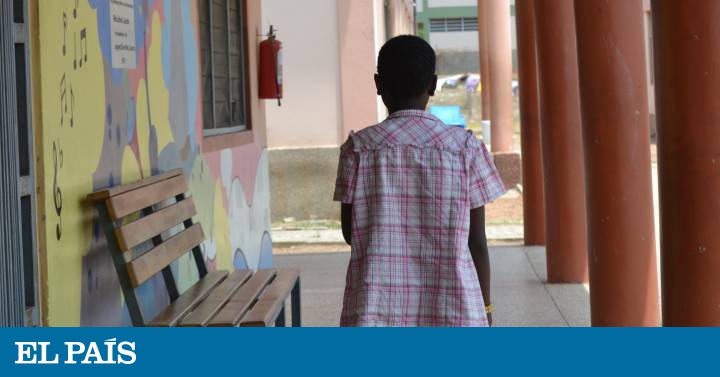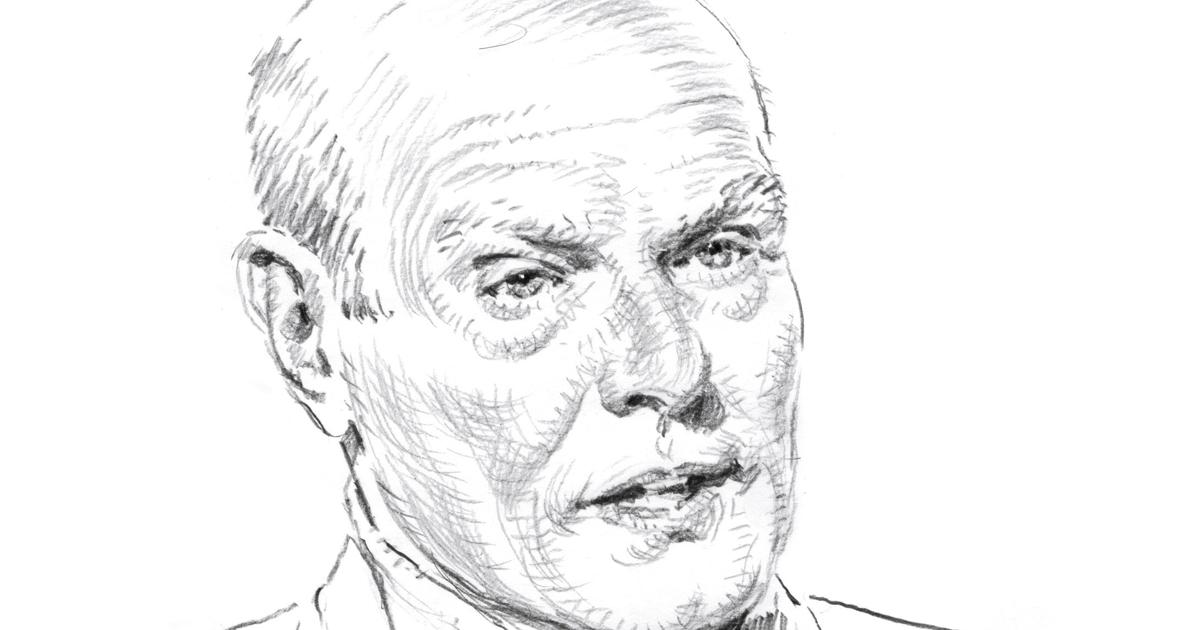Jon (not his real name) speaks slowly, finds it difficult to pronounce more than monosyllables and looks with shy and suspicious eyes. He is thin, his legs show dozens of small marks and his head a fungal infection whose consequence, a thin but visible white layer, stands out above the rest of his body. Jon says that he's probably eight years old, that he doesn't know. “A while ago, I don't remember how much, my mother gave me a man who came home and he took me fishing. The last months I have been transporting the load of what others took from the lake, untangling the nets from the bottom of the water… ”, he explains.
MORE INFORMATION
Street children: those most exposed to the coronavirus- The business of shame continues to grow in India
- Patrols against trafficking in women
When that man went to see Jon's poor family in Adidome, a rural area of the Volta region, one of the ten that make up Ghana, what he was really looking for, under the pretext of giving him an impossible education with so little financial resources in his Birthplace, it was cheap and submissive labor. And children are conducive to it. This sub-Saharan country, where 25% of the population lives below the poverty line according to the United Nations (other studies place this figure at around 40%), finds a great problem and challenge in human trafficking, especially of minors. old for jobs related to fishing in Lake Volta, the world's largest reservoir with more than 8,500 square kilometers.
Despite the fact that, for logistical reasons, it is very difficult to count how many children have been victims of human trafficking and the ensuing slavery regime, an extensive investigation by the humanitarian organization International Justice Mission found in 2013 that almost 60% of children who They worked in the fishing industry of Lake Volta (49,000 in total according to verified sources) had been trafficked. The same body also denounced that tens of thousands of minors between three and 17 years old are transferred to this region annually during the high fishing season and forced to work during days that sometimes extend until 18 hours. . Of these, 62% were, like Jon, under the age of 10.
Just under 50,000 minors work in the great Lake Volta; almost 60% have arrived there after being a victim of human trafficking
"They hit me when I didn't do something right or they wanted to send me to work," says Jon, who was rescued and turned over to the Ghanaian police. He is now recovering from trauma and injuries at the Children Protection Center, a shelter in Accra, the country's capital, which the Salesian NGO Don Bosco has targeted at underage victims who, like him and who have been working closely since 2014 with the Government, not oblivious to this problem. Not surprisingly, in recent years the effort to combat this scourge has redoubled; it has increased resources dedicated to implementing more effective plans, it has increased prison terms for people convicted of human trafficking and it has adopted more modern systematic data collection procedures.
These measures are insufficient, however, for different organizations that have studied the subject in depth. One of the last voices to denounce it has been the United States Department of States, responsible for the international relations of the North American country, which stated in its powerful 2019 Trafficking in Persons Report that the Ghanaian government “does not fully comply with the standards. standards for the elimination of trafficking ”, although he acknowledges recent efforts to eradicate it.
Traumas of slavery
Fatumatah (not his real name) also tells a story similar to Jon's. More talkative and smiling, she says she does not know what school is, that a member of her family, an aunt of hers, took her long ago to a place, also near Lake Volta, where she spent days cleaning fish that other people Most of the children also brought in large quantities. "I don't know how many hours I spent doing that, but many," he recalls. “I have never been to school. I could not; nobody has taken me ”, he affirms. And she tells of the aggressions suffered: beatings for not working, a family that does not care about her and that makes family reintegration, one of the main objectives of the Salesian NGO with the children who have been victims, something that is really complicated with her .
All in all, fishing in Lake Volta is not the only destination for Ghanaian children who are victims of trafficking and smuggling. "Here we have received kids who, once their families were deceived, have had to be repatriated from South Africa after promises to make them footballers. Also girls who have been trafficked to Arab countries like Saudi Arabia or Tunisia to work as domestic slaves or, worse, for prostitution and sexual services, ”says Francis Adzraku, director of the Children Protection Center. This last reality, that of minors trafficked for the purpose of sexual exploitation, has also been denounced and corroborated by different organizations. A coalition of local NGOs published a report in 2015 that collected several examples. The case of a group of Ghanaians under the age of 7 rescued in Nigeria by the police, who had been forced into prostitution, is perhaps the most bloody of all.
Traffickers go to rural areas and for about 50 Cehdis (about 8.5 euros), under the promise of a future at school, they take dozens of children
Adzraku says that, since the Children Protection Center began, about 400 minors have passed through it. About thirty are trying to recover today from the horrors suffered. “Child trafficking is a big problem because it is cultural. There are people who go to some places where poverty reigns, promise that they will take children to school for about 50 cehdis (about eight and a half euros) and never do. The boy changes hands until he ends up working in the Volta region, in most cases, but also in conditions of slavery in another country, "he confirms. When the police or other international organizations rescue them, another phase then begins, that of helping to forget everything experienced and start a new life.
Jon has a hard time remembering everything. That's why he talks so little. So he looks shy and suspicious. "When the kids arrive here, and after doing a medical check-up, they are very traumatized. We try not to think about what they have suffered. And since they are children who, for the most part, have never been to school, we teach them to write, read and speak English, ”continues Adzraku, who affirms that there are minors who have been victims even on three occasions. And he remembers one of the cruellest cases: “There was a boy who was sold to a family with his sister. Out of fear, she called her parents and told them they were doing very well, that they liked the new school very much. When they got here, the boy hated not only his captors, but also his sister. "
Before saying goodbye, Fatumatah says that he does not want to hear anything about Lake Volta or its fish again. When she grows up, she continues, she dreams of dedicating herself to helping girls who have gone through situations similar to her own. "I see what they do with me here, in Don Bosco, and I really like it," he says before posing for the photos while still smiling. She is already safe, but child trafficking and smuggling and child labor will continue to be a reality in her country. And also (or especially) in Africa. According to Unicef, in sub-Saharan Africa there are around 48 million working children and almost one in three children under the age of 15 (29%) is economically active. When this body also counts all the regions of the world, it raises this figure to 151.6 million minors. In Ghana, moreover, the worst forms occur: slavery, forced recruitment, prostitution, trafficking and exposure to certainly dangerous activities. “Parents have no way of knowing what they do with their children when they take them away. This is a serious problem with a difficult solution, "concludes Adzraku.
You can follow PLANETA FUTURO on Twitter and Facebook and Instagram, and subscribe here to our newsletter.



/cloudfront-eu-central-1.images.arcpublishing.com/prisa/ZTYVRPXY7NGDJKLEOZB432EXRI.JPG)









